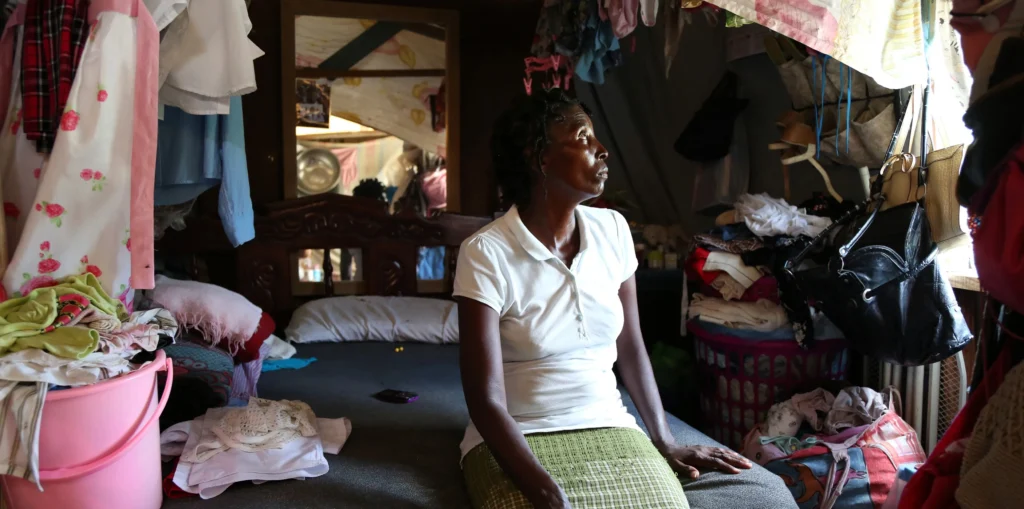A recent report by UN Women has unveiled the severe living conditions and security challenges faced by approximately 300,000 displaced women and girls amidst ongoing political instability in Haiti.
This critical situation is further exacerbated by rampant gang violence and the looming threat of the hurricane season.
Women and girls make up more than half of the 580,000 displaced individuals in Haiti, according to the UN Women Rapid Gender Assessment.
The assessment highlights that the lack of basic necessities in makeshift camps has left them particularly vulnerable to sexual and gender-based violence.
Conducted in April 2024, the survey focused on the six most populated and diverse displacement sites in Port-au-Prince, the capital of Haiti.
The findings revealed alarming deficiencies in camp security: most sites lack essential lighting and locks in key areas such as bedrooms and toilets, leaving residents exposed to daily threats from gangs.
The persistent danger from stray bullets and other security risks underscores the urgent need for enhanced protection measures.
UN Women has raised concerns over the use of sexual violence as a deliberate tactic by gangs to control access to humanitarian aid in many camps.
“Our report tells us that the level of insecurity and brutality, including sexual violence, that women are facing at the hands of gangs in Haiti is unprecedented. It must stop now,” stated Sima Bahous, UN Women Executive Director.
Bahous called on the newly appointed Haitian Government to take immediate action to prevent and respond to the violence against women and girls.
She emphasized the necessity of increasing women’s participation in camp management to ensure that their security concerns are addressed.
“Humanitarian aid must be safely distributed in line with the differentiated needs of women and girls,” she added.
Dire Economic Conditions for Displaced Women
The report also highlighted the dire economic circumstances faced by women in these camps. Nearly 90 percent of those interviewed reported having no source of income.

Over 10 percent admitted to resorting to or considering sex work or prostitution to meet their needs at least once, and 20 percent knew at least one person who had done so.
Additionally, 16 percent of respondents reported feeling intimidated, harassed, or traumatized by armed gangs, and almost 70 percent expressed mental distress due to the surge in violence.
Alarmingly, only 10 percent reported having access to health services in the camps.
In response to the crisis, UN Women is working to support women’s organizations in reaching displaced individuals within host communities and camps.
This includes projects backed by the UN Women’s Peace and Humanitarian Fund, the UN Peacebuilding Fund, and the German Government.
The agency has also trained police officers to better prevent sexual and gender-based violence and provide support to survivors.
Furthermore, UN Women continues to aid women entrepreneurs affected by road blockages and ongoing violence through a project funded by Norway.
Last October, the UN Security Council authorized the deployment of a Multinational Security Support (MSS) mission to assist the Haitian National Police in combating gang violence.
UN Women has urged all parties involved in the non-UN mission to prioritize the immediate protection of women and girls. They also stressed the importance of giving Haitian women’s organizations a leading role in the management of displacement camps.
Currently, only two percent of women surveyed have leadership roles in camp management.
UN Women emphasized the urgency of ensuring their active participation in decision-making processes and implementing immediate protection measures.
The plight of displaced women and girls in Haiti remains a pressing issue. The UN Women report sheds light on the need for comprehensive and urgent action to address their safety, well-being, and economic empowerment amidst the ongoing turmoil.
READ ALSO: China Suspends Arms Control Talks With U.S


















